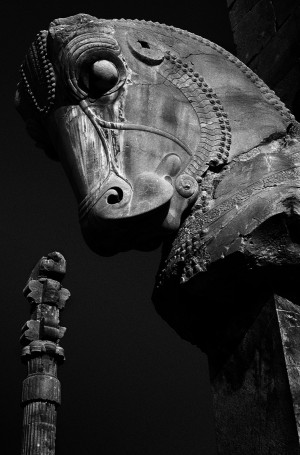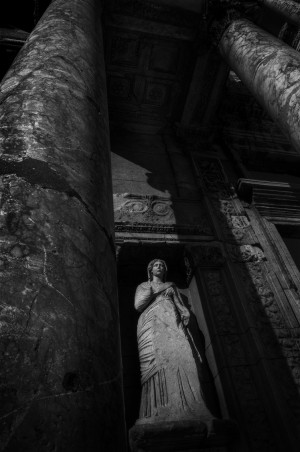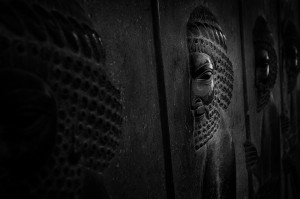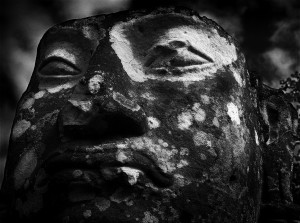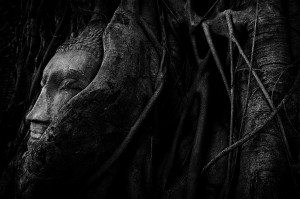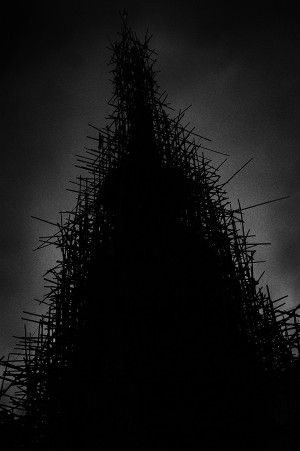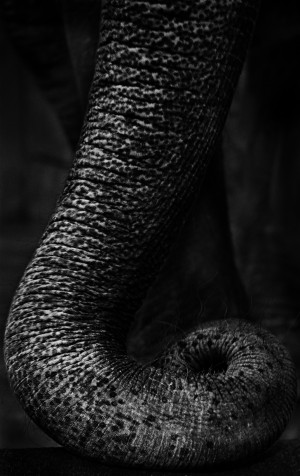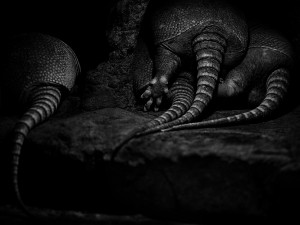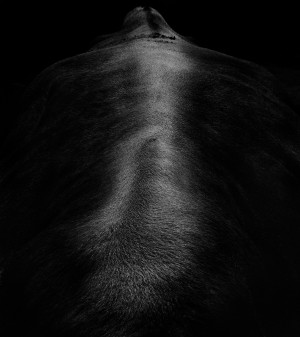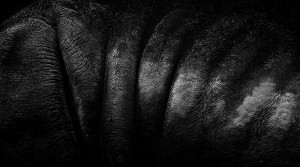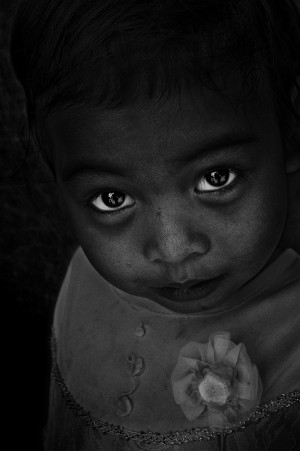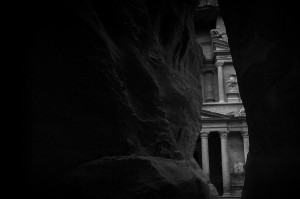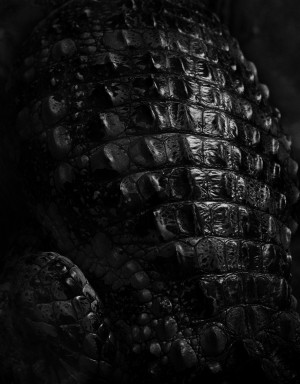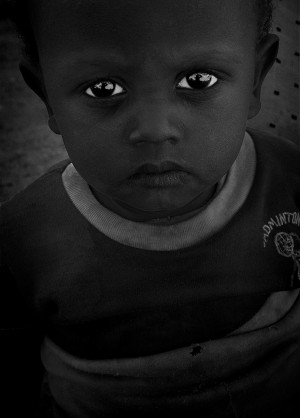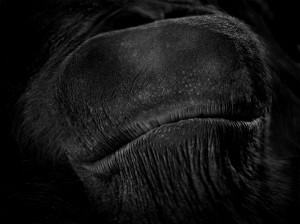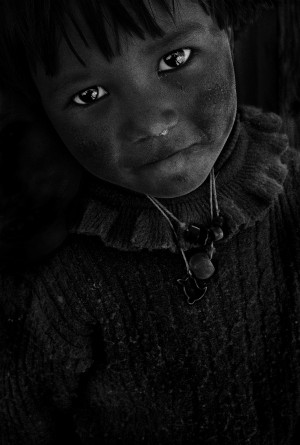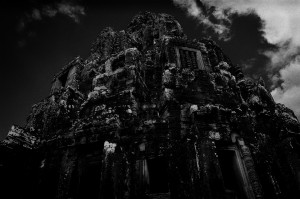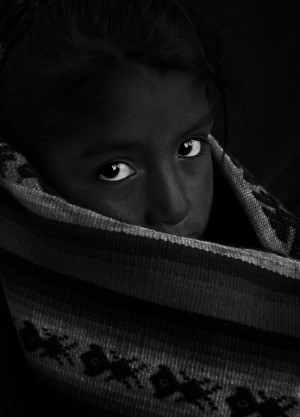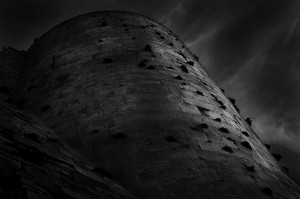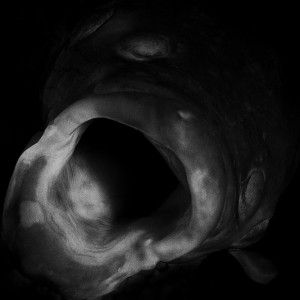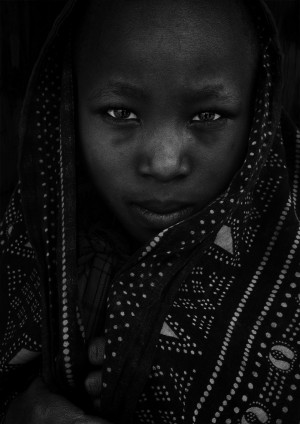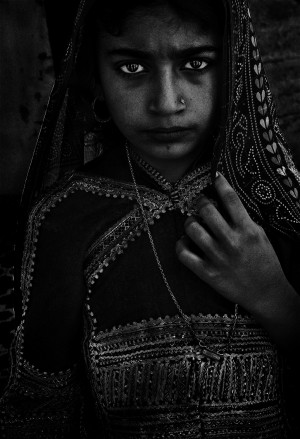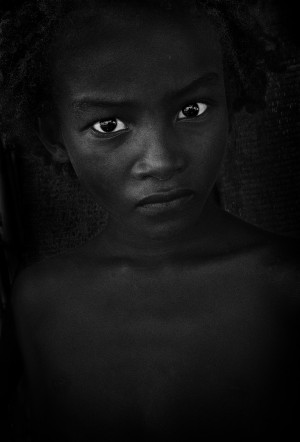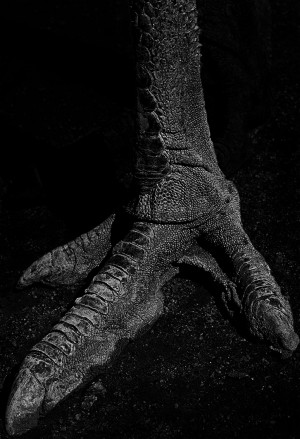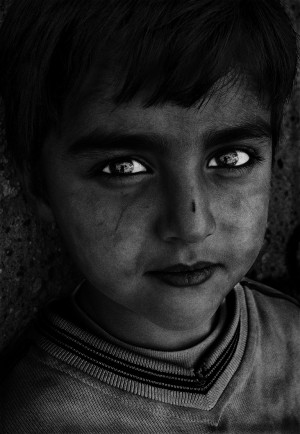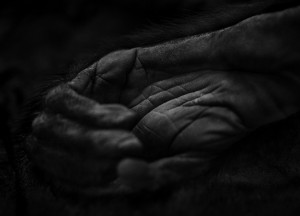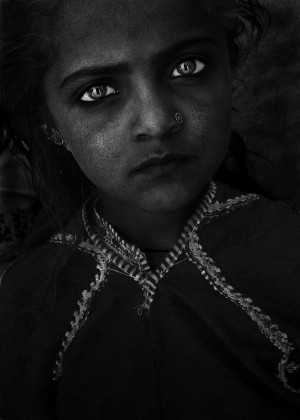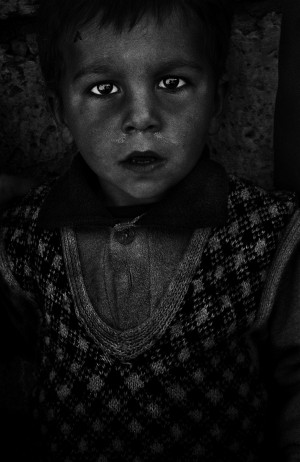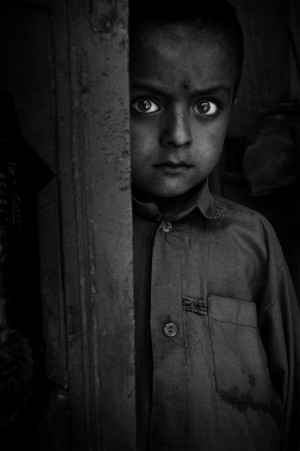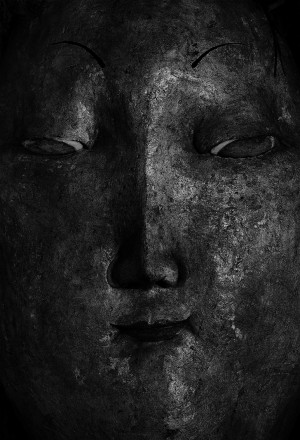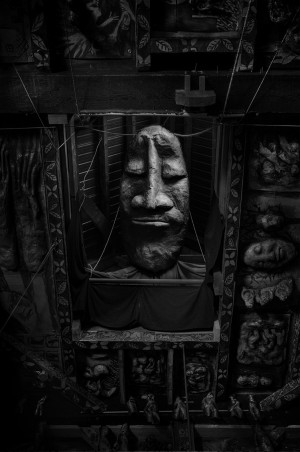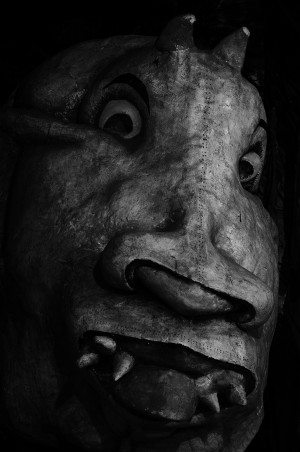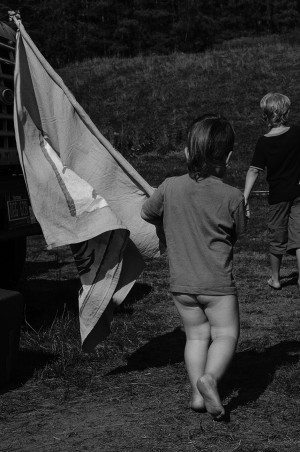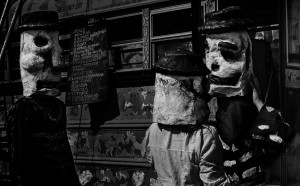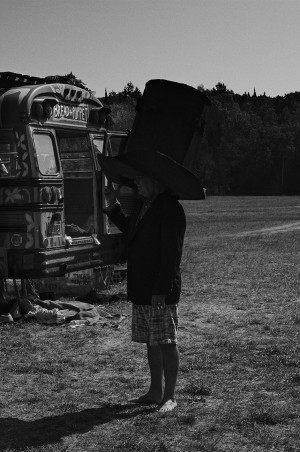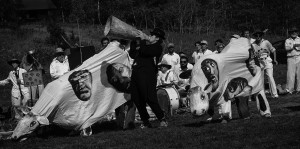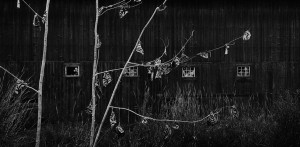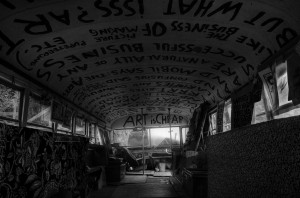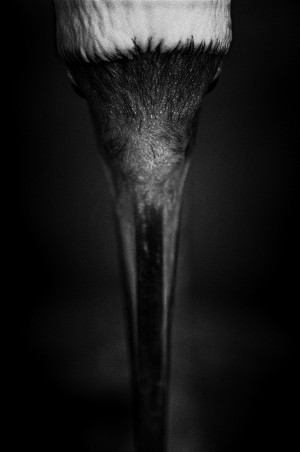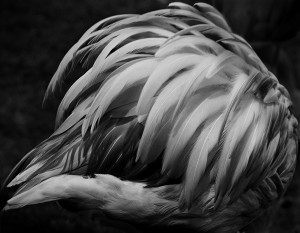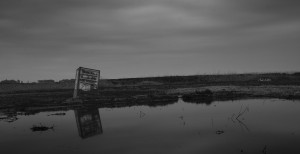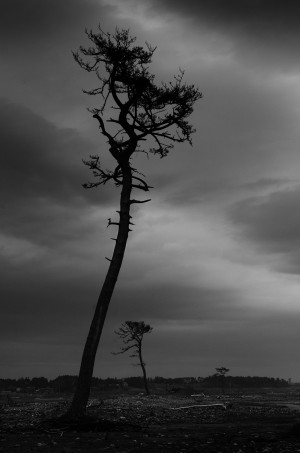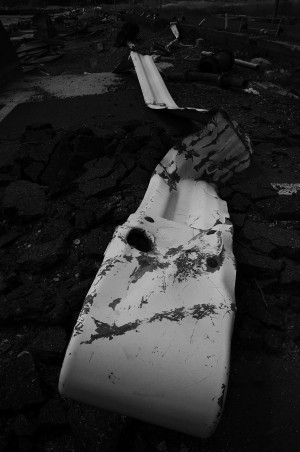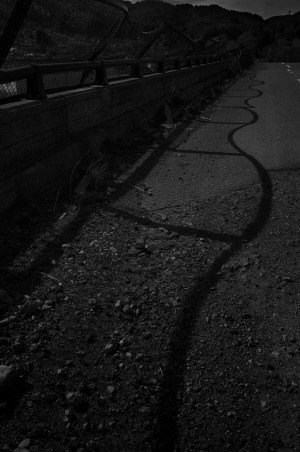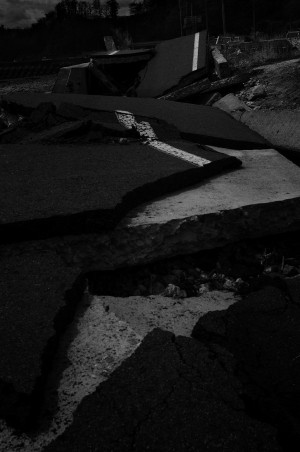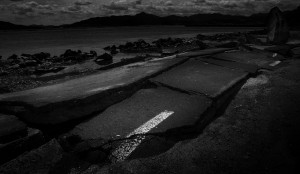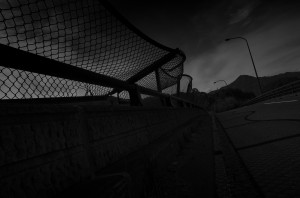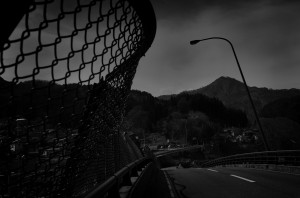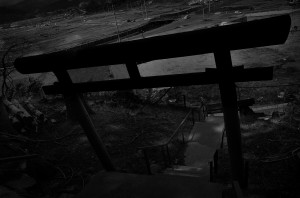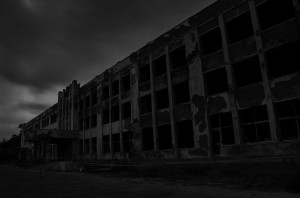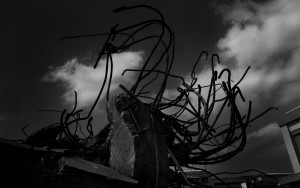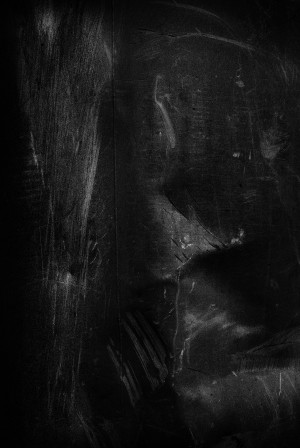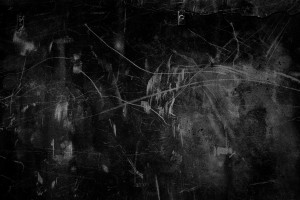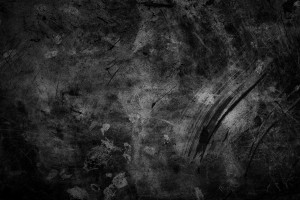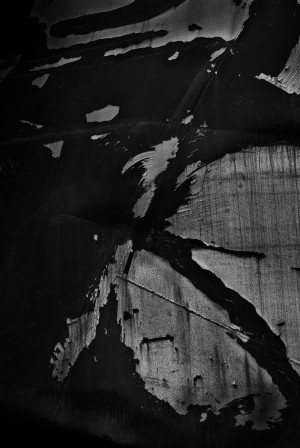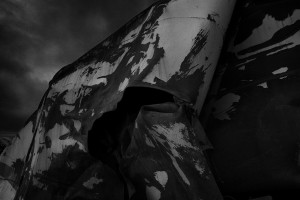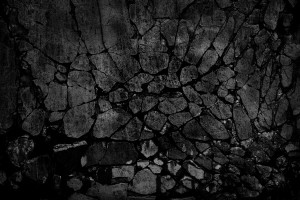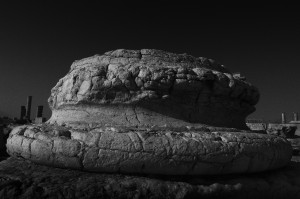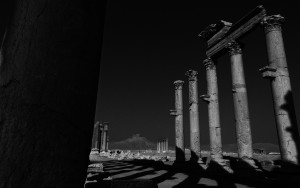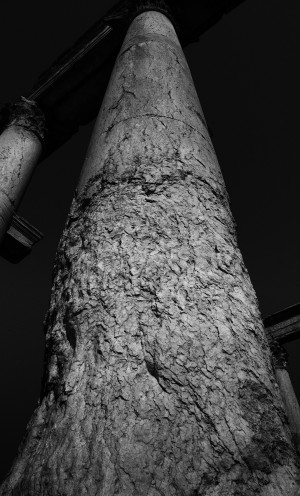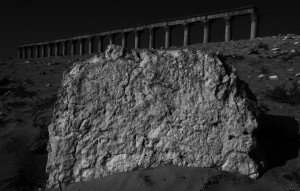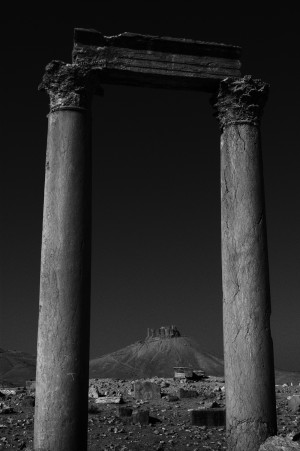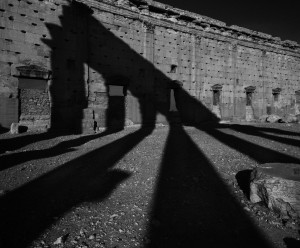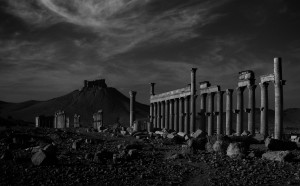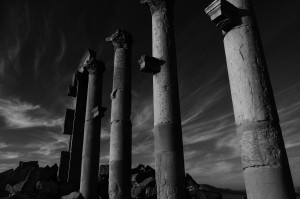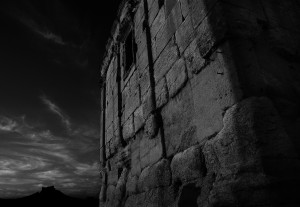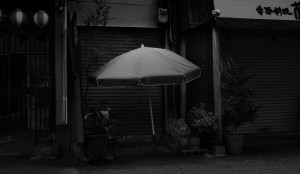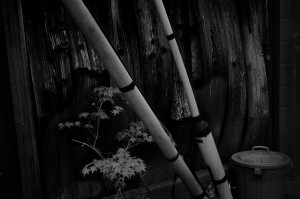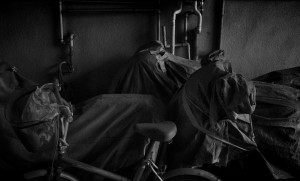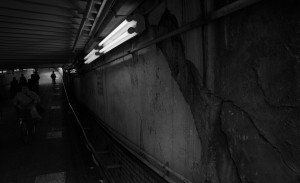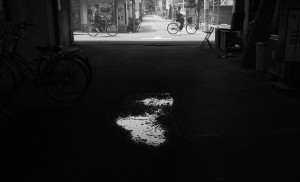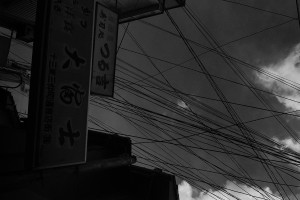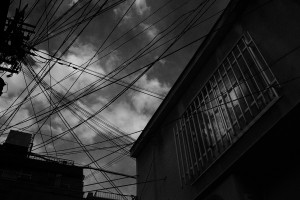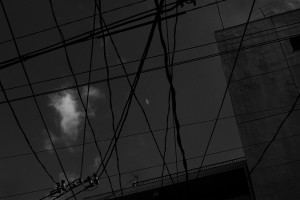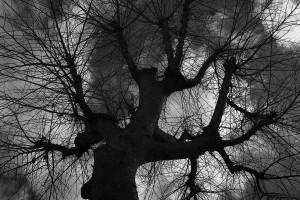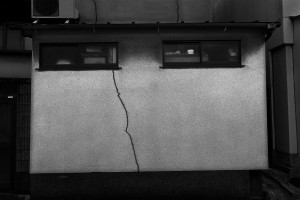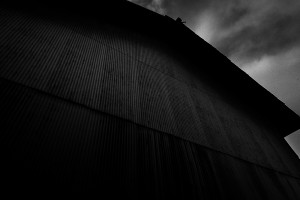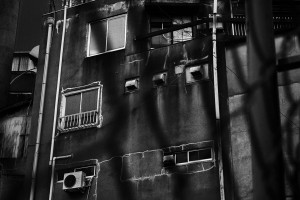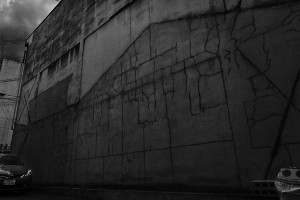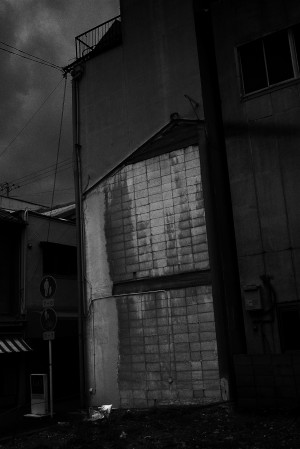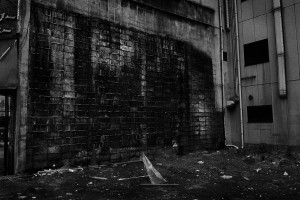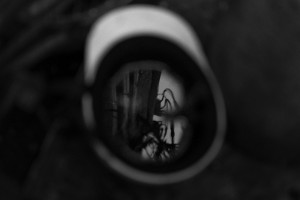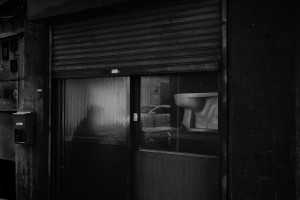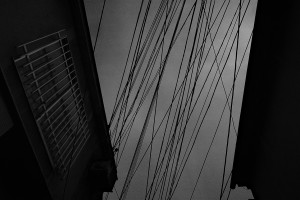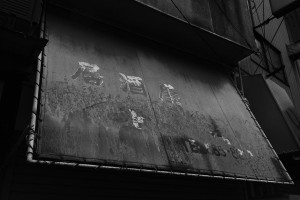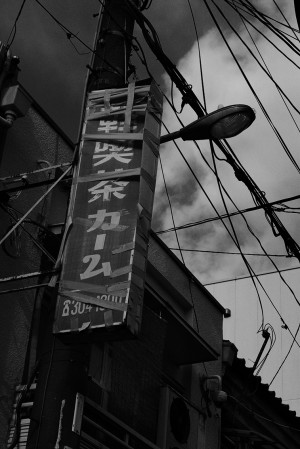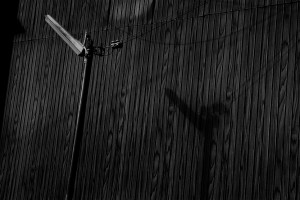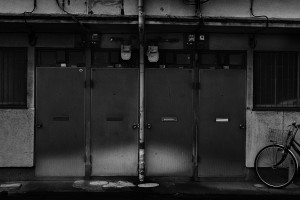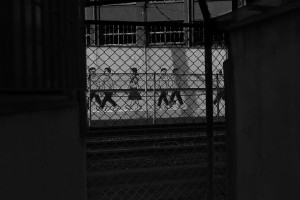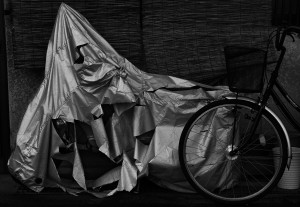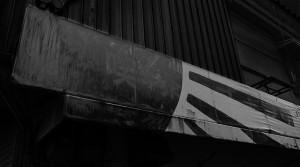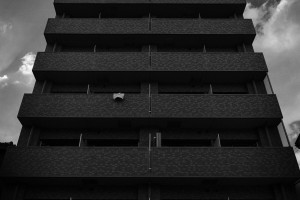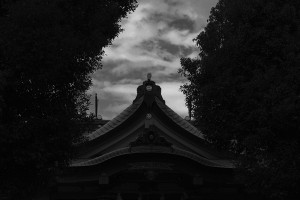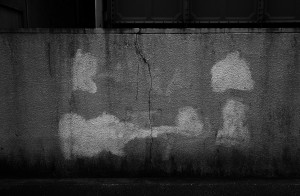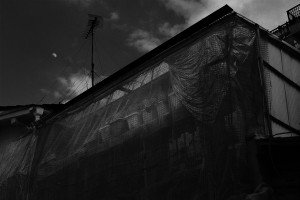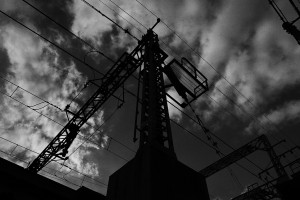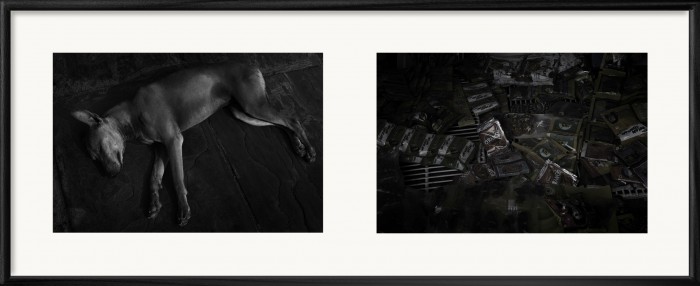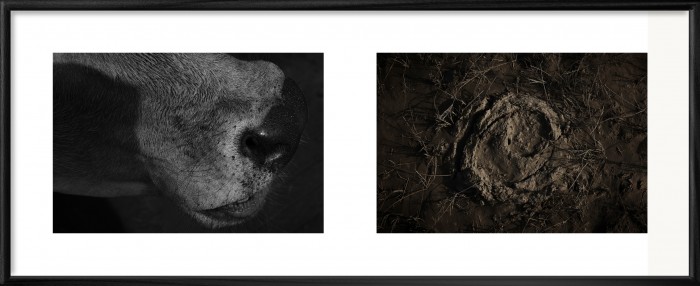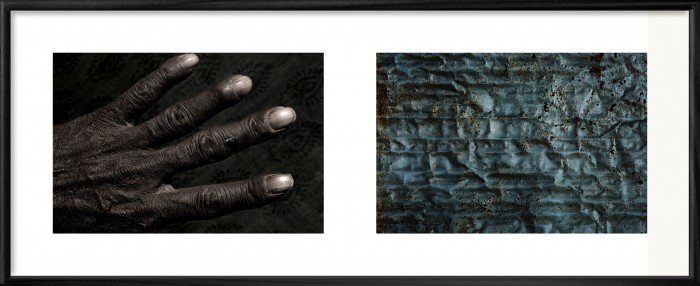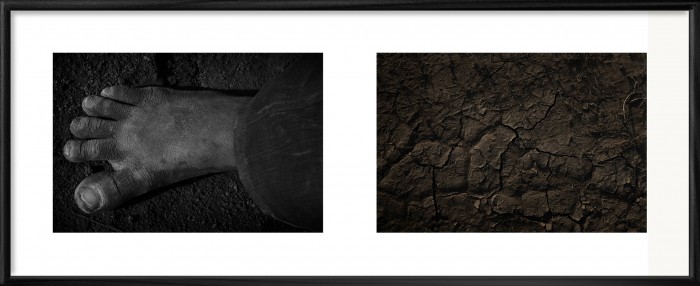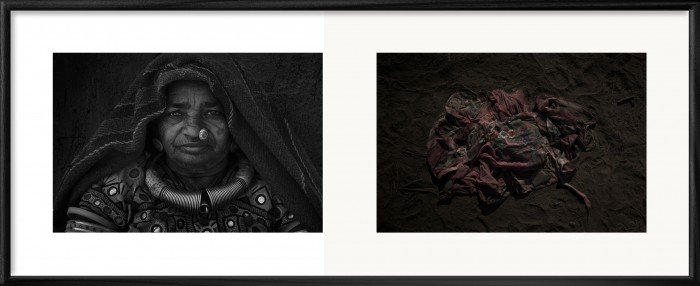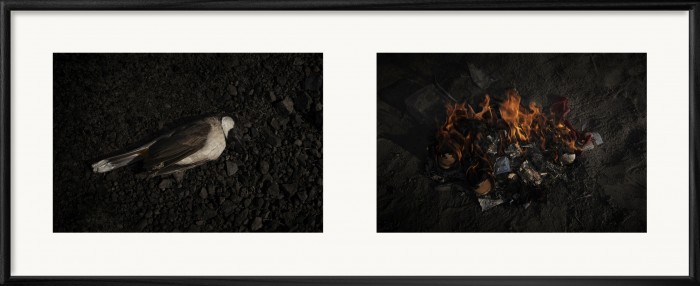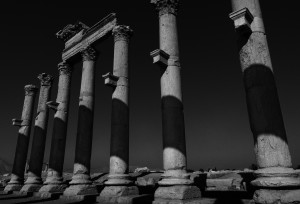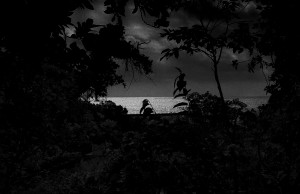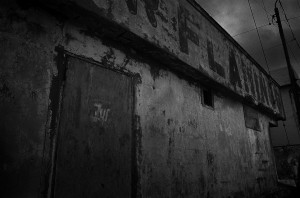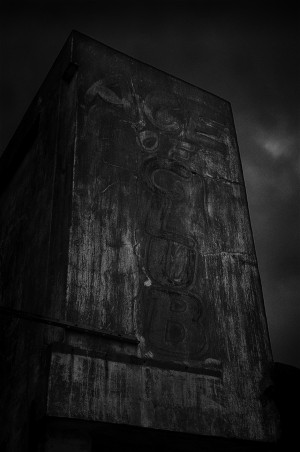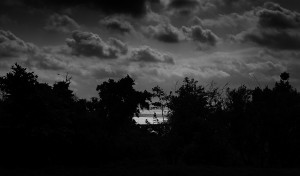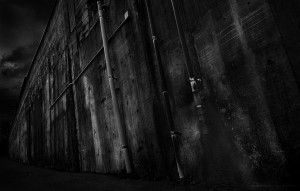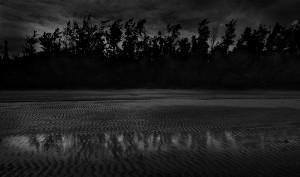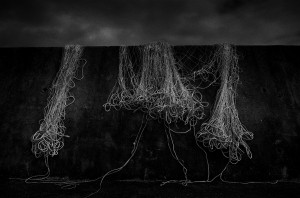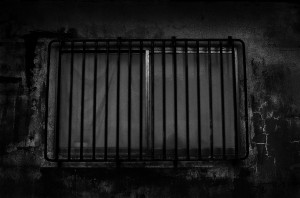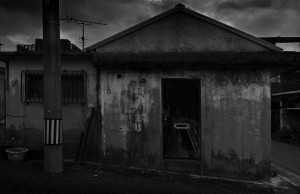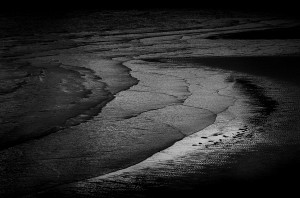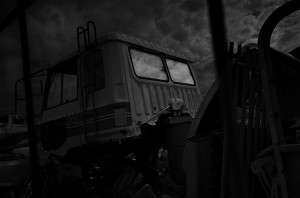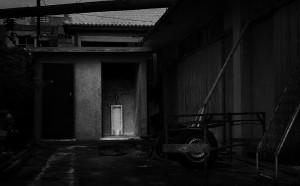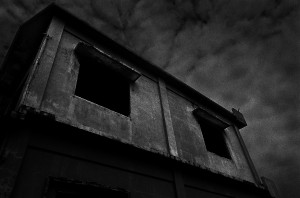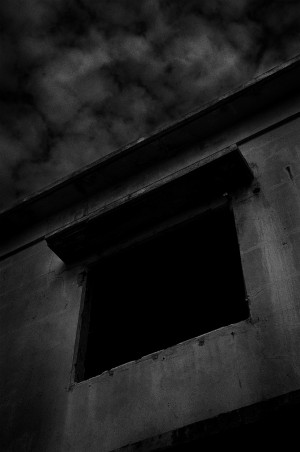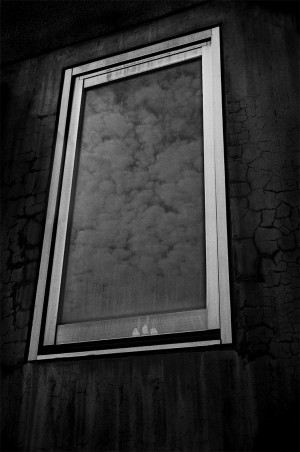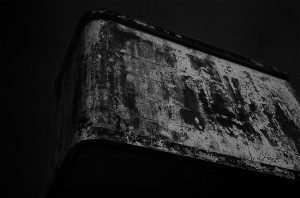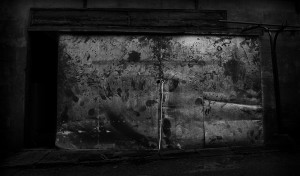原始の記憶
私が初めて海外を旅したのが一九九一年。いろいろな事が嫌になって日本を逃げ出し、パリに行った。
初めは何もすることがなくぶらぶらと過ごしていたが、ある旅人に「アフリカは良いよ」と言われ、軽い気持ちでスペインから船でジブラルタル海峡を超え、アフリカに渡った。
アフリカでは毎日が戦いだった。特に砂漠の方の村に行くと日々生きていくことで精一杯だった。毎日、太陽とともに起き、同じものを食べ、寝るだけの生活は、日本では考えられなかった。
しかし、初めは辛かったこの生活にも時間とともに慣れ、半月もしないうちに私は何の違和感もなく暮らせるようになっていた。
その頃、仲良くなった家族が家に泊めてくれることになったが、何もしないのも悪いので、「何か手伝うよ」と言ったら、
それなら玄関を掃いてくれないかと言われたので、その日から玄関を掃くのが僕の日課となった。
玄関といっても扉はなく、毎朝起きると結構砂がたまっていて大変だった事を覚えている。
ある日、いつにも増して大量の砂が玄関にたまっている時、少し面倒になった私は「この作業をやめたらどうなるだろうか?」と考えてみた。
答えは簡単で、家が砂に埋まってしまい砂漠の一部になってしまうだけだ。その時、何かが心に引っ掛かったが、深く考えずに砂を一生懸命にかきだしていた。
今考えると、私にとって、このアフリカの生活が、「原始の記憶」について考えるきっかけになったような気がする。
その後、はっきりと「原始の記憶」について考えはじめたのは、中南米を旅している頃、昔ながらの生活を送っている人達や風化していく遺跡と出会った時、
日本では気付くことのなかった、”流れ”のようなものを感じたのが始まりだった。
その後、アジアを旅した時、その”流れ”は私の中でより大きなものになっていった。
その”流れ”の中に自分を置いた時、自分の立っている場所が、とても危うく落ち着かない感じがして不安な気持ちになったのを覚えている。
その時、アフリカで感じた矛盾が何なのか少しわかったような気がした。
私たちの社会は、便利なものを開発することで快適に過ごせる環境を手に入れたが、それらは、人の手から離れた時点で自然本来の姿に戻っていく。
同じことが人にも言える。そう感じさせたのは、南米を旅している時に出会ったインディへナの女の子だった。その子は農村の小さな教会の前の椅子にマンタを被って一人で座っていた。
南米では外国人を見ると笑顔で近寄ってきてお金を求めてくる子供が多いが、その子だけはこちらを見ているにもかかわらず、じっと動こうとしない。
私は、妙に気になり、近くまで行って彼女の横に座り、写真を撮らせてくれないかと身振りで伝え、カメラを向けてみた。
それでも彼女は、にこりともせずにじっとレンズを見ているだけだった。その時の彼女は、今まで出会った子供たちと違い、顔や瞳から、時代に影響される事のない強い意志のようなものが滲み出ていた。
インディヘナの歴史は、侵略によって閉じたかのように考えられているが、彼らは、自分たちが受け継いできた記憶の歴史を閉ざすことなく今も引き継いでいる。
今日の世界にも、人間が手を離せば原始に戻る物と、原始の記憶を受け継いで昔と変わらない精神を持って生きている人たちが存在する。
私は、それら「原始の記憶」を集めることで、現代人が捨ててしまった大切な何かをもう一度浮かび上がらせることができればと思っている。
『風の旅人』 38号より
Primal Memento
I first traveled abroad in 1991. I didn’t like many things and ran away from Japan and went to Paris.
At first, I spent my time hanging out without doing anything, but one traveler said, “Africa is good,” and with a light feeling, I flew from Spain across the Strait of Gibraltar to Africa.
Every day was a battle in Africa. Especially when I went to a village in the desert, I was able to live every day. It was unthinkable in Japan to just wake up with the sun, eat the same food, and sleep every day.
However, I got used to this difficult life at first over time, and within half a month I was able to live without any discomfort.
At that time, my family got to stay at home, but it’s bad to do nothing, so when I said “I’ll help you”,
Then I was asked if I could sweep the front door, so it became my daily routine to sweep the front door from that day.
Even though it was the entrance, there was no door, and when I woke up every morning, I remember that it was difficult because of the accumulation of sand.
One day, when more sand was piled up in the front door than ever before, I was a little annoyed and thought, “What if I stopped this work?”
The answer is simple: the house is buried in the sand and becomes part of the desert. At that time, something caught my heart, but I was trying hard to scrape the sand without thinking deeply.
When I think about it now, I feel that this life in Africa has inspired me to think about “primitive memories.”
After that, I began to think about “primitive memories” clearly when I was traveling in Central and South America, when I met people living old-fashioned lives and weathering ruins.
It all started when I felt something like a “flow” that I hadn’t noticed in Japan.
After that, when I traveled to Asia, the “flow” became bigger in me.
When I put myself in that “flow”, I remember feeling uneasy because the place where I was standing felt very dangerous and restless.
At that time, I felt that I knew a little about the contradiction I felt in Africa.
Our society has acquired a comfortable environment by developing convenient things, but when they are separated from human hands, they return to their original form of nature.
The same can be said for people. It was an Indie Henna girl I met while traveling in South America that made me feel that way. The child was sitting alone in a chair in front of a small rural church, wearing a manta ray.
In South America, many children smile and ask for money when they see foreigners, but even though they are looking at us, they do not move.
I was curious, so I went up close to her, sat down beside her, gesturing to let me take a picture of her, and pointed her at the camera.
Still, she was just staring at the lens without a smile. At that time, unlike the children she had met, her face and eyes exuded something like a strong will that was not influenced by the times.
The history of Indigena is thought to have been closed by the aggression, but they continue to carry on the history of their memories without closing it.
In today’s world, there are things that return to the primitive when humans let go, and people who inherit the memories of the primitive and live with the same spirit as before.
By collecting those “primitive memories”, I hope to re-emerge something important that modern people have abandoned.
From “Journey of the Wind” No. 38
